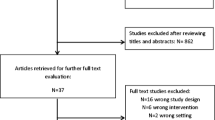Abstract
Background
Patients seeking bariatric surgery are traveling longer distances to reach Bariatric Centers. The purpose of this study was to evaluate the impact of travel distance on adherence to follow-up and outcomes after bariatric surgery.
Methods
A retrospective review of all consecutive patients who had undergone bariatric surgery from June 2013 to May 2014 was performed, and the patients were divided into two groups: those who traveled 50 miles or less and those who traveled more than 50 miles. Primary outcome assessed was the influence of distance on post-operative follow-up attrition over 4-year period. Secondary outcomes assessed were excess weight loss, length of stay (LOS), complications and readmission rates.
Results
A total of 228 patients underwent bariatric surgery with 4 years of follow-up available. Of these, 145 patients traveled 50 miles or less and 83 patients traveled greater than 50 miles. Patient demographics were similar between the two groups. Those who traveled more had statistically higher probability of attrition up to 3-year follow-up mark. There was no difference in percent excess weight loss at each follow-up visit between the two cohorts. Furthermore, there was no difference in readmission rates (2% vs 5%), minor complications (14% vs 10%), major complications (3% vs 2%) and LOS (2.6 days vs 2.6).
Conclusion
The distance patients traveled for bariatric surgery did not affect their weight loss success, length of stay, postsurgical complications or readmission rate. Despite the lack of influence on postoperative outcomes, follow-up compliance was statistically affected by distance.


Similar content being viewed by others
References
Inabnet WB, Bour E, Carlin AM, Clements R, Finks J, Hutter M, Joyce C, Marley K, Moran J, Morton J, Reavis K, Richardson WS, Satgunam S (2013) Joint task force recommendations for credentialing of bariatric surgeons. Surg Obes Relat Dis 9:595–597
Kwon S, Wang B, Wong E, Alfonso-Cristancho R, Sullivan SD, Flum DR (2013) The impact of accreditation on safety and cost of bariatric surgery. Surg Obes Relat Dis 9:617–622
Telem DA, Talamini M, Altieri M, Yang J, Zhang Q, Pryor AD (2015) The effect of national hospital accreditation in bariatric surgery on perioperative outcomes and long-term mortality. Surg Obes Relat Dis 11:749–757
Mehaffey JH, Michaels AD, Mullen MG, Meneveau MO, Pender JR, Hallowell PT (2017) Patient travel for bariatric surgery: does distance matter? Surg Obes Relat Dis 13:2027–2031
Livingston EH, Burchell I (2010) Reduced access to care resulting from centers of excellence initiatives in bariatric surgery. Arch Surg 145:993–997
McVay MA, Friedman KE, Applegate KL, Portenier DD (2013) Patient predictors of follow-up care attendance in Roux-en-Y gastric bypass patients. Surg Obes Relat Dis 9:956–962
Moroshko I, Brennan L, O’Brien P (2012) Predictors of attrition in bariatric aftercare: a systematic review of the literature. Obes Surg 22:1640–1647
Gould JC, Beverstein G, Reinhardt S, Garren MJ (2007) Impact of routine and long-term follow-up on weight loss after laparoscopic gastric bypass. Surg Obes Relat Dis 3:627–630
Lara MD, Baker MT, Larson CJ, Mathiason MA, Lambert PJ, Kothari SN (2005) Travel distance, age, and sex as factors in follow-up visit compliance in the post-gastric bypass population. Surg Obes Relat Dis 1:17–21
Sivagnanam P, Rhodes M (2010) The importance of follow-up and distance from centre in weight loss after laparoscopic adjustable gastric banding. Surg Endosc 24:2432–2438
Jennings N, Boyle M, Mahawar K, Balupuri S, Small P (2013) The relationship of distance from the surgical centre on attendance and weight loss after laparoscopic gastric bypass surgery in the United Kingdom. Clin Obes 3:180–184
Shen R, Dugay G, Rajaram K, Cabrera I, Siegel N, Ren CJ (2004) Impact of patient follow-up on weight loss after bariatric surgery. Obes Surg 14:514–519
Favretti F, O’Brien PE, Dixon JB (2002) Patient management after LAP-BAND placement. Am J Surg 184:S38–S41
Morrow E, Bruce DM, Bruce E, Dorrian C, Sim F (2011) Post surgical review of bariatric surgery patients: a feasibility study of multidisciplinary follow up using videoconferencing. Clin Pract Epidemiol Ment Health 7:84–88
Sudan R, Salter M, Lynch T, Jacobs DO (2011) Bariatric surgery using a network and teleconferencing to serve remote patients in the Veterans Administration Health Care System: feasibility and results. Am J Surg 202:71–76
Fahmy MHA, Sarhan MD, Osman AMA, Badran A, Ayad A, Serour DK, Balamoun HA, Salim ME (2016) Early weight recidivism following laparoscopic sleeve gastrectomy: a prospective observational study. Obes Surg 26:2654–2660
Tamboli RA, Breitman I, Marks-Shulman PA, Jabbour K, Melvin W, Williams B, Clements RH, Feurer ID, Abumrad NN (2014) Early weight regain after gastric bypass does not affect insulin sensitivity but is associated with elevated ghrelin. Obesity 22:1617–1622
Funding
There was no funding for this project.
Author information
Authors and Affiliations
Corresponding author
Ethics declarations
Disclosures
Drs. Monfared, Selzer, Butler and Ms. Martin have no conflicts of interest or financial ties to disclose.
Additional information
Publisher's Note
Springer Nature remains neutral with regard to jurisdictional claims in published maps and institutional affiliations.
Rights and permissions
About this article
Cite this article
Monfared, S., Martin, A., Selzer, D. et al. Travel distance reduces follow-up compliance but has no effect on long-term weight loss success in bariatric patients. Surg Endosc 35, 1579–1583 (2021). https://doi.org/10.1007/s00464-020-07535-2
Received:
Accepted:
Published:
Issue Date:
DOI: https://doi.org/10.1007/s00464-020-07535-2




